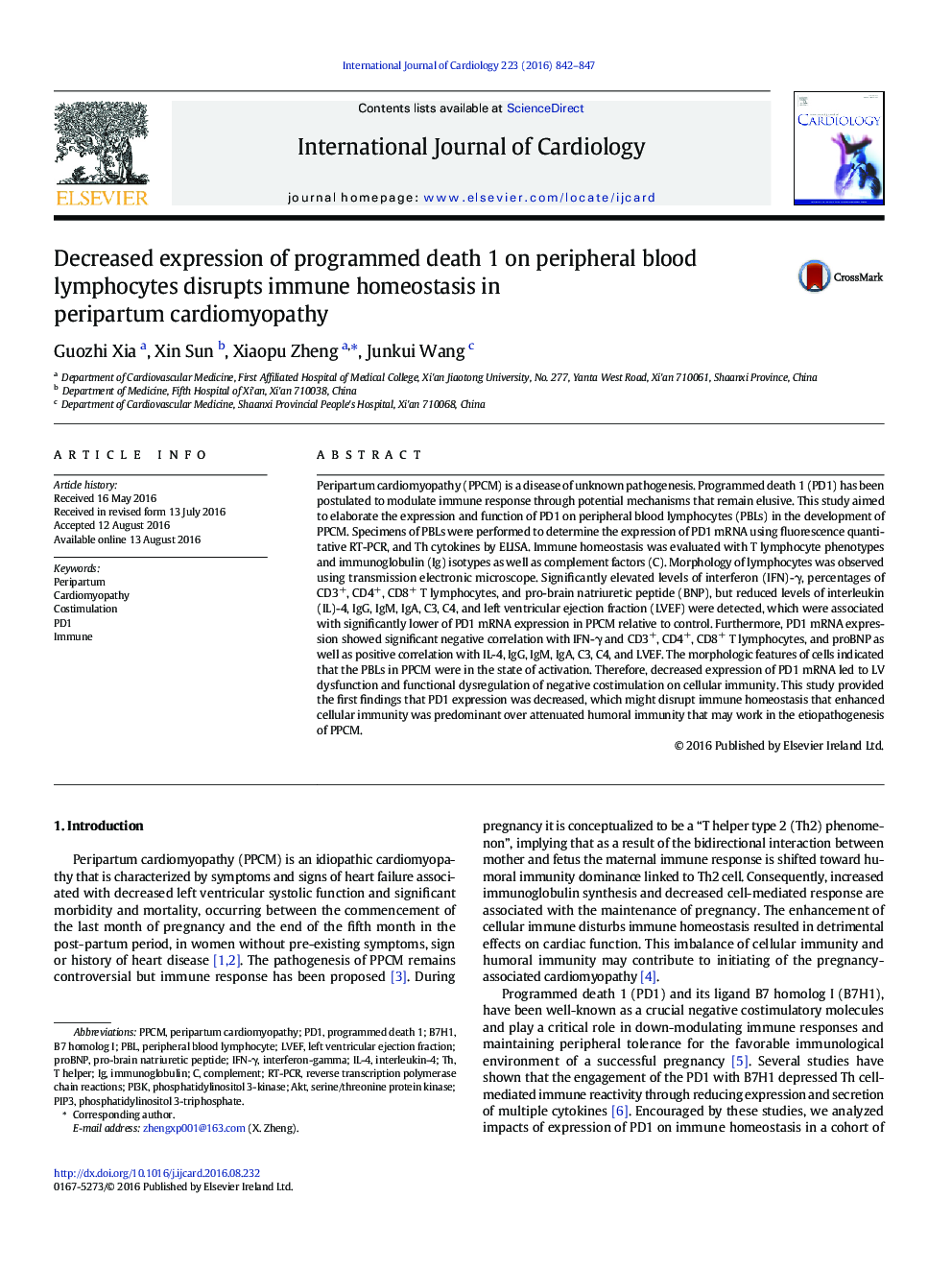| Article ID | Journal | Published Year | Pages | File Type |
|---|---|---|---|---|
| 5963285 | International Journal of Cardiology | 2016 | 6 Pages |
Peripartum cardiomyopathy (PPCM) is a disease of unknown pathogenesis. Programmed death 1 (PD1) has been postulated to modulate immune response through potential mechanisms that remain elusive. This study aimed to elaborate the expression and function of PD1 on peripheral blood lymphocytes (PBLs) in the development of PPCM. Specimens of PBLs were performed to determine the expression of PD1 mRNA using fluorescence quantitative RT-PCR, and Th cytokines by ELISA. Immune homeostasis was evaluated with T lymphocyte phenotypes and immunoglobulin (Ig) isotypes as well as complement factors (C). Morphology of lymphocytes was observed using transmission electronic microscope. Significantly elevated levels of interferon (IFN)-γ, percentages of CD3+, CD4+, CD8+ T lymphocytes, and pro-brain natriuretic peptide (BNP), but reduced levels of interleukin (IL)-4, IgG, IgM, IgA, C3, C4, and left ventricular ejection fraction (LVEF) were detected, which were associated with significantly lower of PD1 mRNA expression in PPCM relative to control. Furthermore, PD1 mRNA expression showed significant negative correlation with IFN-γ and CD3+, CD4+, CD8+ T lymphocytes, and proBNP as well as positive correlation with IL-4, IgG, IgM, IgA, C3, C4, and LVEF. The morphologic features of cells indicated that the PBLs in PPCM were in the state of activation. Therefore, decreased expression of PD1 mRNA led to LV dysfunction and functional dysregulation of negative costimulation on cellular immunity. This study provided the first findings that PD1 expression was decreased, which might disrupt immune homeostasis that enhanced cellular immunity was predominant over attenuated humoral immunity that may work in the etiopathogenesis of PPCM.
